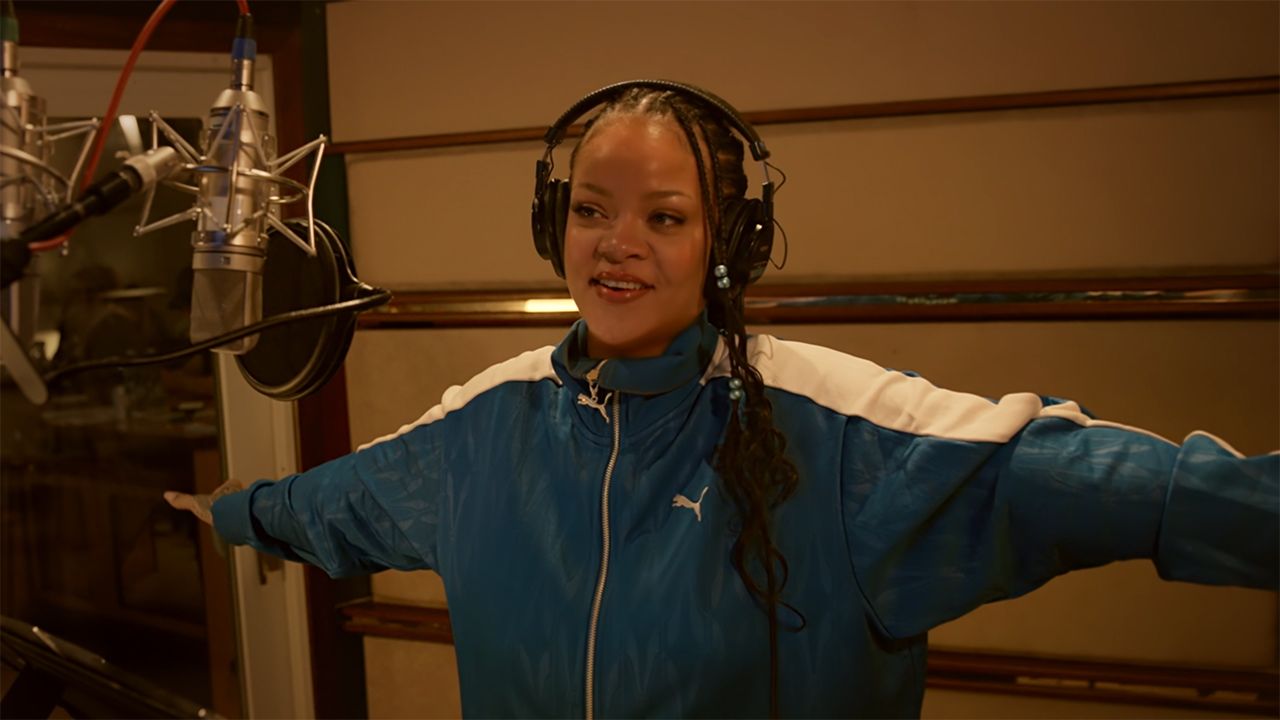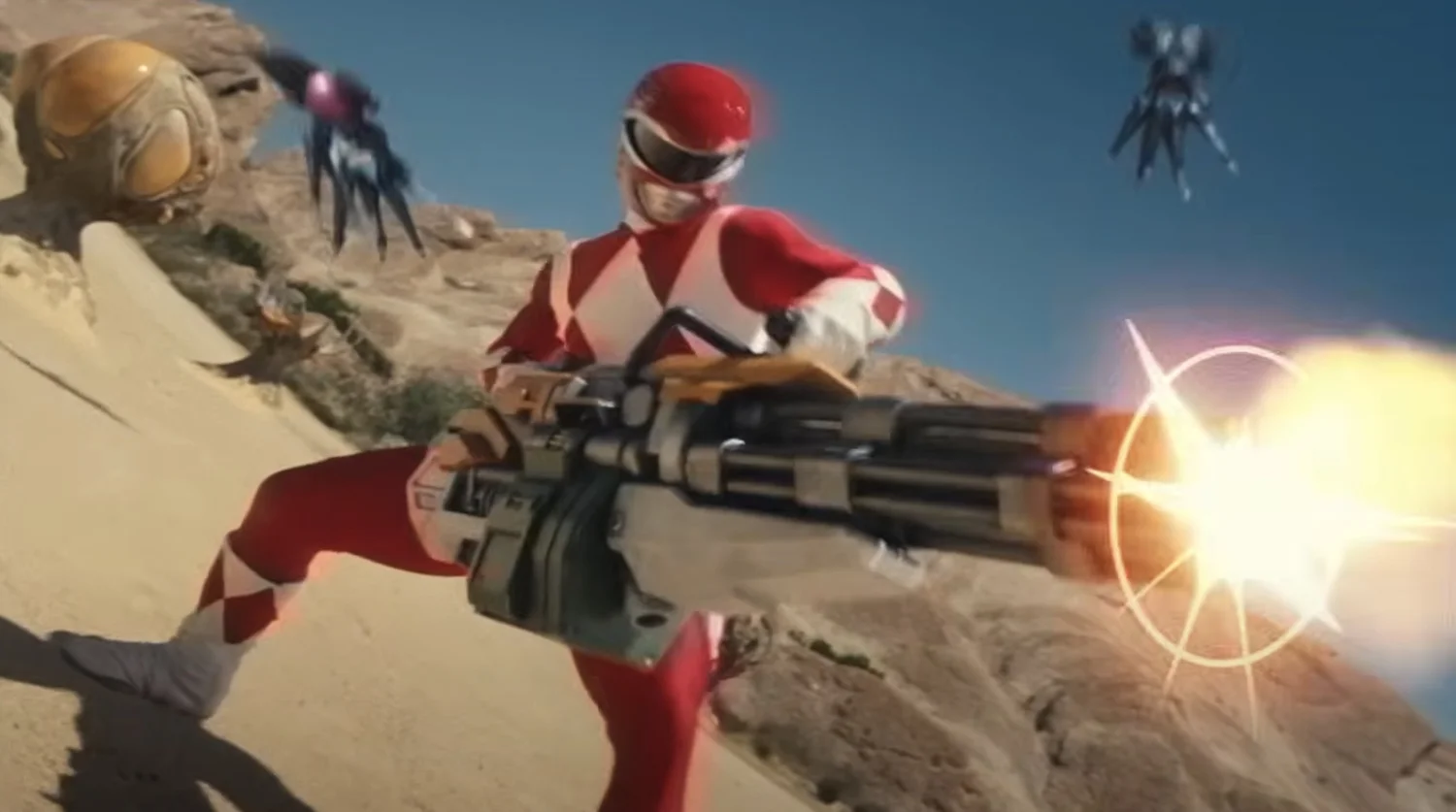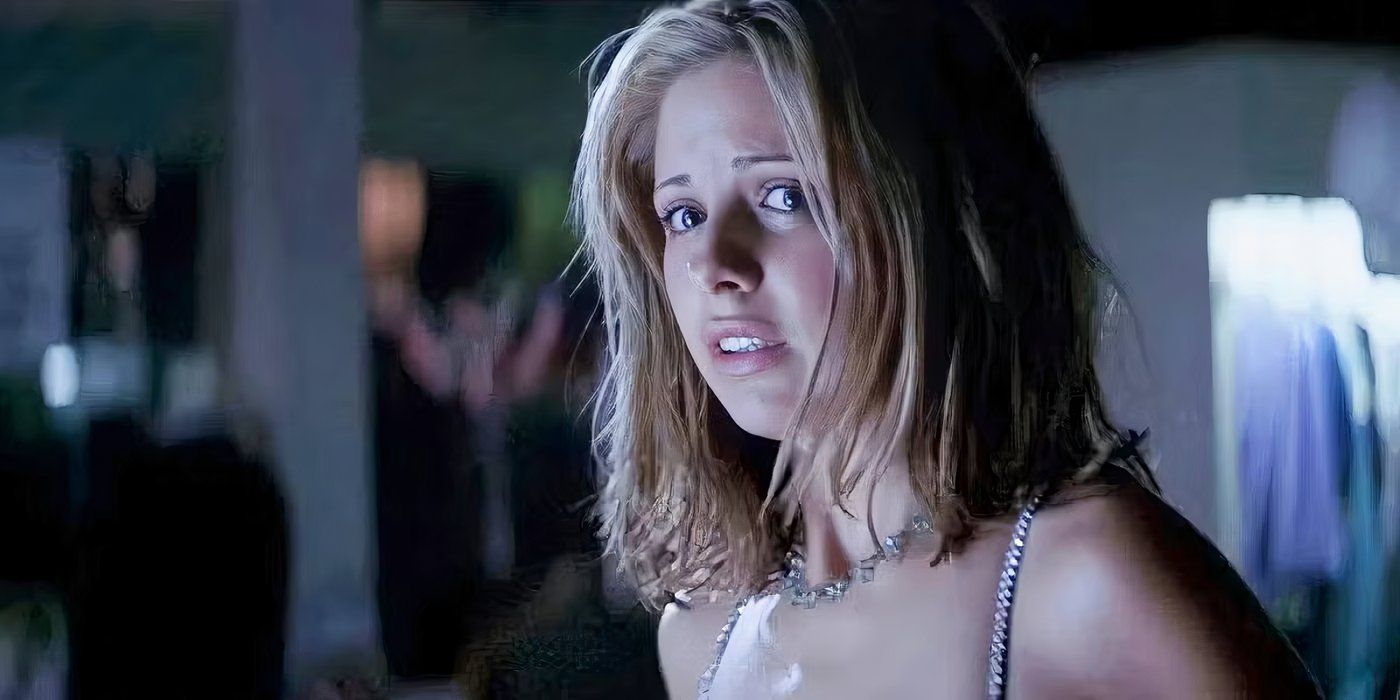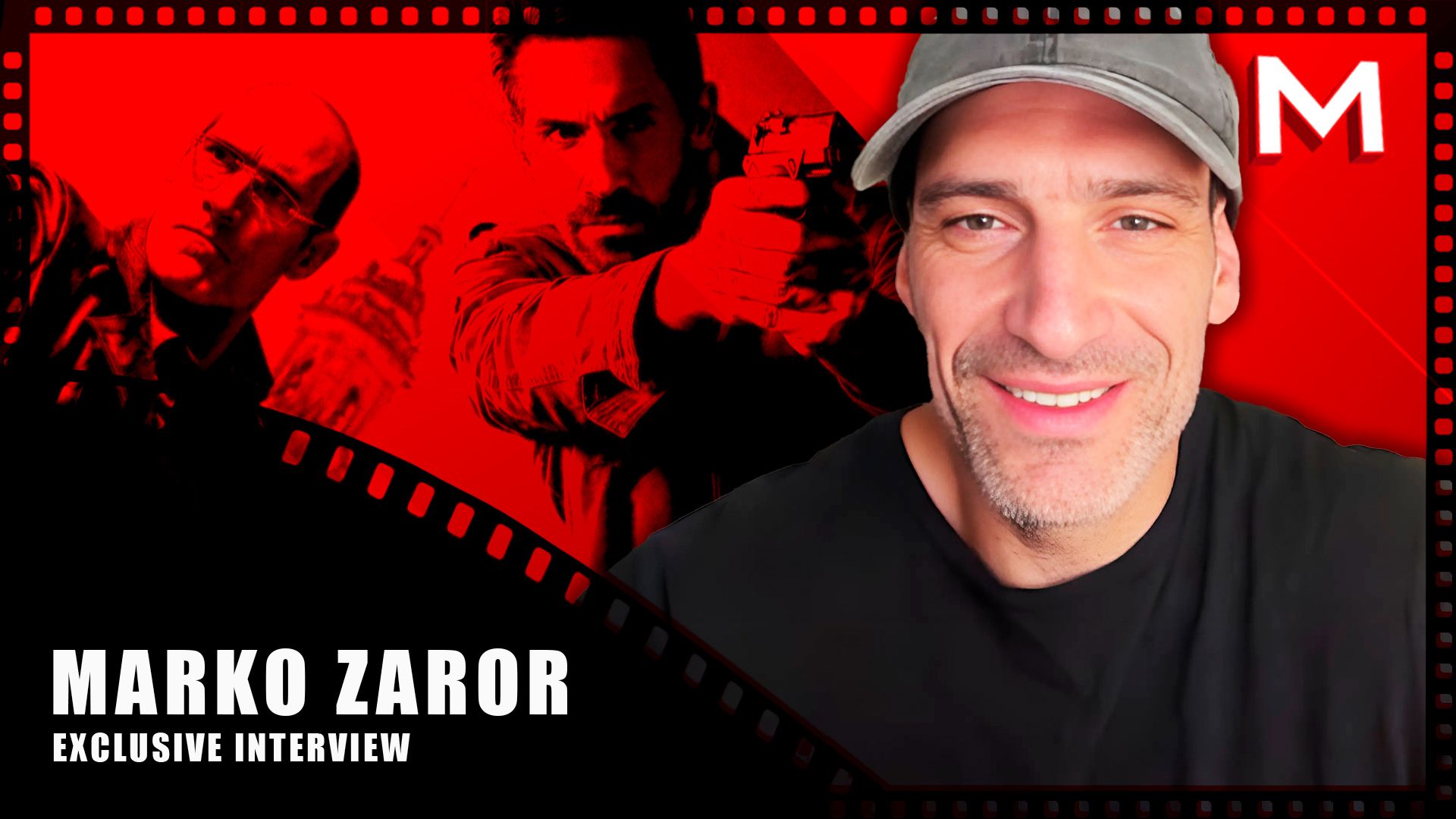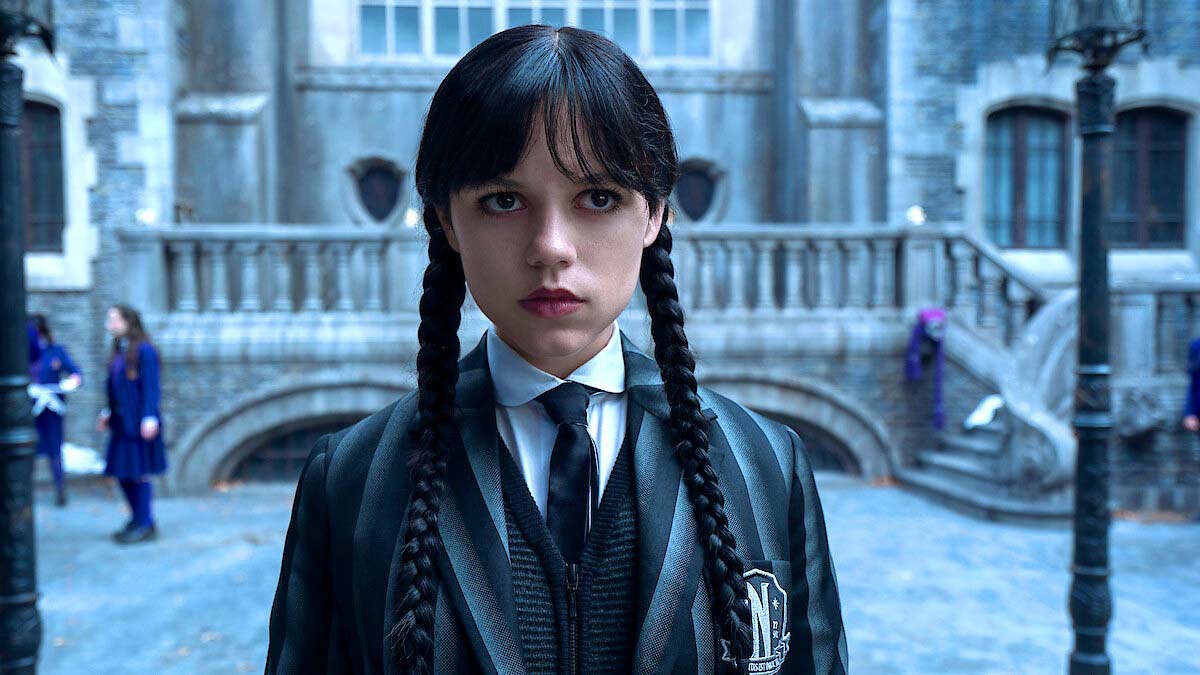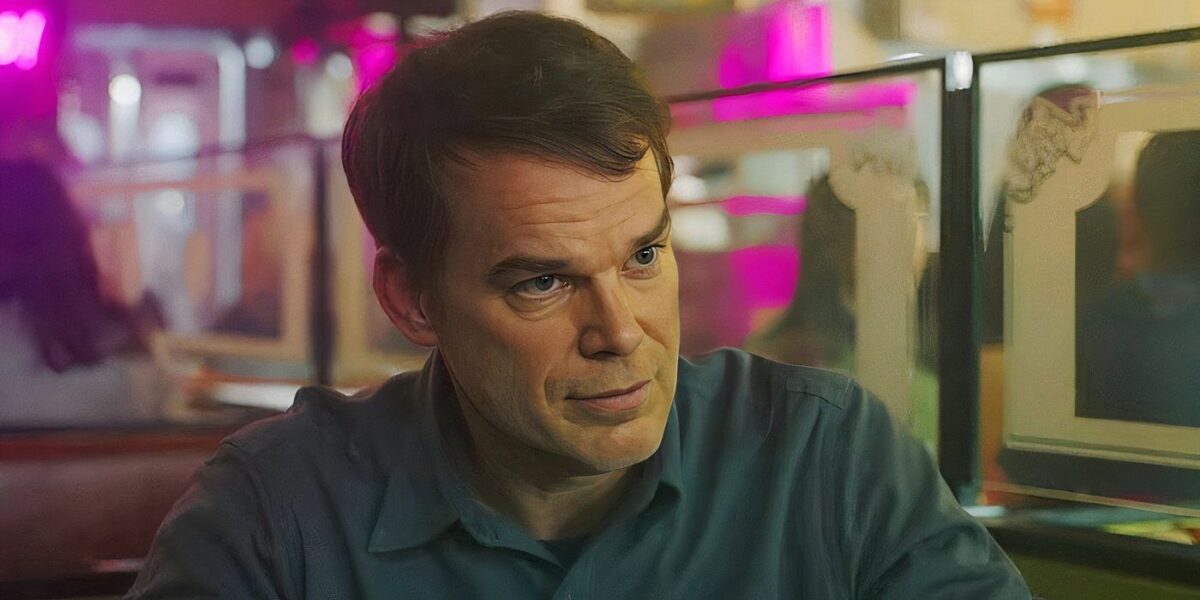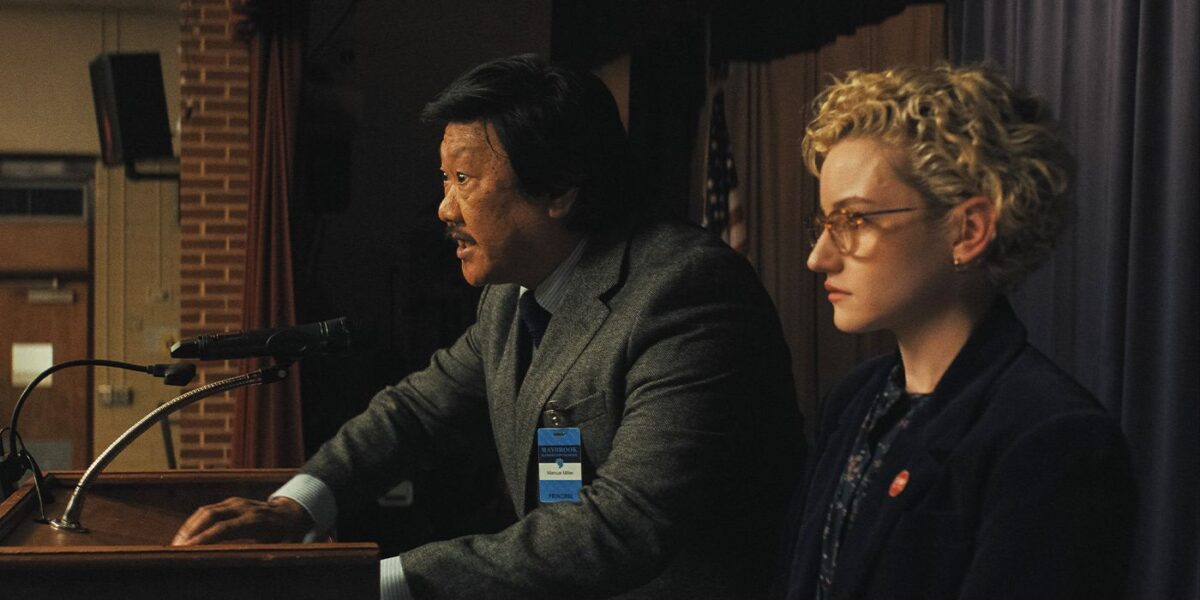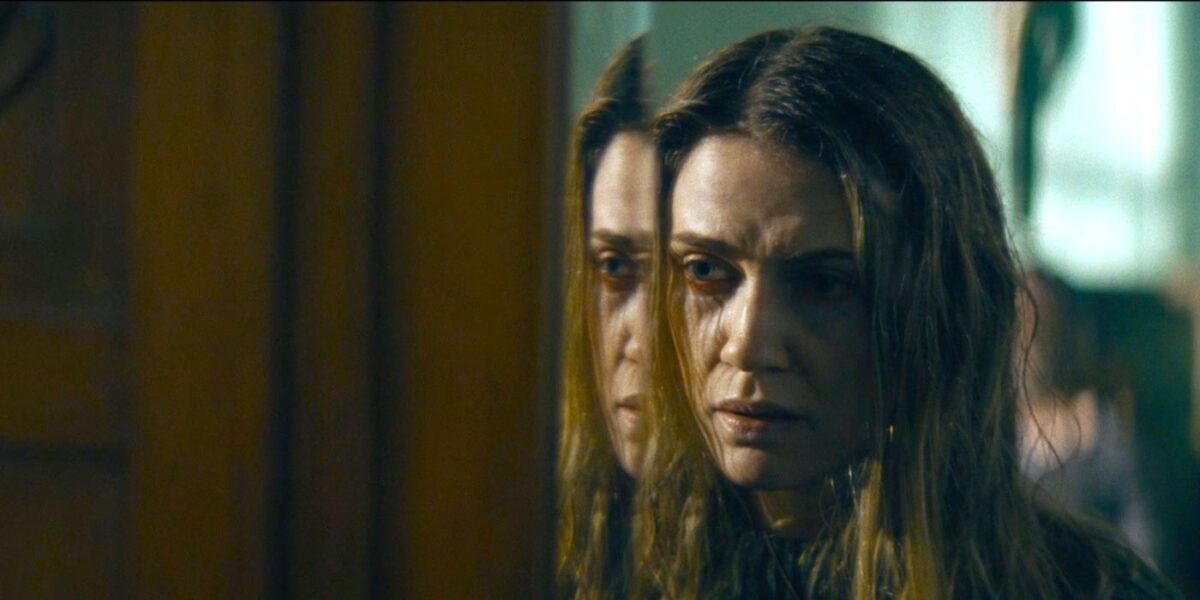
David Farrier on ‘Mister Organ’ & Making an Uncomfortable Documentary
Oct 7, 2023
The Big Picture
David Farrier’s newest documentary, Mister Organ, uncovers the disturbing story of Michael Organ, a dangerous and deluded man involved in property theft, physical assault, and other disturbing activities. The film aims to make audiences feel uncomfortable and unsettled, capturing the claustrophobia and unsettling vibe of small-town New Zealand. Farrier’s experience in making the documentary has influenced his future projects, as he plans to be more cautious about choosing subjects involved in devious behavior. He is taking a break from documentaries but still seeks compelling, unheard-of stories.
David Farrier loves a bizarre story. He’s got a knack for digging up the weird and the morbid, things no one’s thought to explore before — or never had the guts to. His directorial debut as a documentarian, Tickled, took a strange dive into the world of competitive tickling, which unearthed a dark secret living just below the surface, and his newest feature, Mister Organ, does just the same, bringing back his unique ability to discover disturbing stories that resonate in all the most unsettling ways.
What starts as a simple investigation into cars having their wheels clamped in the parking lot of an antiques dealer quickly spirals out of control, honing a singular focus on one particular man: Michael Organ, a strange and unusual figure who turns out to be much more dangerous than he seems. The film is the disturbing tale of one deeply deluded man, a master gaslighter who spends his life damaging other people’s, from stealing property to physical assault to a myriad of other things, all of which Farrier finds himself caught up in when he begins his investigation. The documentary crawls under your skin and stays there, and it’s tough to watch Farrier continue to interact with Organ, as he struggles to uncover any information that’ll explain why this man is the way he is.
Collider sat down with Farrier to discuss the documentary at the Overlook Film Festival, where it screened for horror fanatics ahead of its October 6 release. During this interview, he broke down making the film and accidentally ending up as a character on screen, as well as what he hopes audiences get from the film, what it’s been liking showing it to them, and why Michael Organ is such a nightmare to edit.
Image via Drafthouse Films
Check out the full interview below and check out Mister Organ when it hits theaters on October 6.
COLLIDER: You detail in this documentary the point when you decided you wanted to pursue this as a story. But in general, when you’re going from writing just as a journalist, at what point do you decide, “Oh shit, I need to make this into a sort of bigger thing”?
DAVID FARRIER: It’s a combination of things. A gut instinct comes in, and I think it’s a combination of knowing that there are a bunch of questions that I’m really curious about. So, just personally really driven with some central mystery. In this case, it was essentially, “Who is Michael Organ and what is his relationship with Jillian [Bashford]?” That was the driving thing. But I think it’s a combination of characters, a really big central question, and then just a background that’s interesting. And in this world it was sort of the world of antiques, antique murkiness, and small town New Zealand, and I really like the visuals of those elements as well.
Yeah, yeah. I was going to say, because even though it was Ponsonby, it reminded me a lot of where I live, which is small town Pennsylvania.
FARRIER: Yeah, similar thing. It’s like, small towns have this kind of claustrophobia around them, and Whanganui, which is where a lot of this takes place, it’s all small. And when we end up hanging out with Michael, a lot of the time you are in these cramped places that are full of stuff, and it kind of feels like it’s closing in around you. I liked those visual elements as well.
The claustrophobia is definitely what got me because, I think about thirty-five minutes into the movie, I just started squirming. I was like, “I feel like I can see this dude around the corner. I don’t like it.” And I wonder, was that kind of the intention, for it to be a deeply sort of uncomfortable experience when you’re putting it together?
FARRIER: Absolutely. It’s uncomfortable hanging out with Michael, and the dream was for people that were watching to feel an element of being uncomfortable, and I wanted people to feel like you’re going on the journey of discovery with me, as you are. But yeah, just to feel this weird sort of unsettled vibe that you don’t quite know where it’s coming from. And I felt that so clearly being around him, but if an audience gets an inkling of it, as well, then I feel like I’ve been somewhat successful.
Yeah. I’m not going to lie, it was the longest 90 minutes of this festival for me. And I mean that in a good way, I swear to God.
FARRIER: No, it’s Mister Organ’s voice. It just kind of gets under your skin. It’s this drone, and…I haven’t ever experienced anyone like him before, and I hope I never will again. But it’s great. If you got a bit of that feeling, then I feel that’s part of our job done.
Image via Firefly Films
What has it been sharing this with audiences? Because obviously, I know you premiered this at Fantastic Fest, but watching people watch this movie, what’s that like?
FARRIER: Super cathartic, because my main fear is that I was just in all of this alone, but having other people watch it and react to it is…well, it’s everything, and that’s a great feeling. And the best thing, it happened a couple of times just after the screening now, is people coming up and talking about similar experiences that they’ve had with people, and that’s huge because that’s kind of…the dream in the back of my head is that this is such a specific story about a very strange man. But if people can see elements of that and people they know in their life, it kind of acts as a warning, and also just a kind of, “You are not alone in this. You weren’t going crazy. Yeah. It’s not you, it’s them.” That kind of camaraderie is what I wanted to connect around it.
Yeah. Because it’s such a specific focus versus your other stuff, which is…I guess larger scale stuff.
FARRIER: Yeah. It’s super hyper-focused. I just wanted to– I don’t know. I guess I wanted people to spend 90 minutes with a very specific kind of man doing very specific things, and you could just, as an audience, observe him doing them and pulling the strings, and just be party to that. Because it took me six years to crack it, and if you can get an understanding of that in 90 minutes, then I feel that’s a good thing.
I feel, and I think I speak for everybody in at least my screening, that we were deeply concerned for your wellbeing the entire time.
FARRIER: Yeah, it definitely made me feel very afraid, and a bit– I felt wrecked throughout, towards the end. But, unlike many of the people Michael met – Michael’s like the master at isolating people – I was incredibly lucky in that I had this really committed little team around me that never went away. So, whenever I felt like I was losing a grip on my sanity, I could go back into reality again, and that kept things level enough where I could keep somewhat together.
And that’s the thing that interests me with your work, is that you’re a character in this as much as anybody you’re profiling.
FARRIER: I don’t mean to. I didn’t mean to.
Yeah! I know with Dark Tourist, obviously you’re a host, so that’s kind of an intentional thing, but I guess that happened accidentally on Tickled and now you just kind of keep going.
FARRIER: Yeah, it was such a big discussion on Tickled whether I would be part of it. Do I need to be impartial and just show what David D’Amato was doing? But it became so obvious that I was so involved with him, and how he was attacking me, that if I didn’t tell that part of the story, then it wouldn’t be honest. It would be missing so much of the story. And it was by sheer fate that’s just what happened with Michael. I don’t want to keep making documentaries where I am in it all the time, believe it or not. Like, I don’t love the camera on me, and I would love to direct something where I’m not in it. But it just happens that Mister Organ and Tickled both had that happen organically, and I couldn’t stop it.
Image via Firefly Films
I will say, Tickled I saw back in high school, and that was the first documentary I ever…it made me give a shit about documentaries because of you being on camera.
FARRIER: Oh, really?
I thought it was different from what I’d seen in school, which is this sort of very standard documentary, and I was just like, “Oh, this is interesting.” But maybe that’s my morbid fascination with what was going on.
FARRIER: No, that’s cool! The thing that’s good, and obviously there’s a million different ways to tell a story and make a documentary, but I think one advantage you have if you’re in the story is you can kind of go somewhat behind the scenes a little bit, and [there are] moments where you see where I’m talking to the crew, or it’s very obvious that people are being mic’d up, and what’s going on, and you can kind of break that fourth wall a little bit. And if you are in the story, it makes it that much easier to do. I think if you can tell more of the story about what’s actually going on behind the scenes in making the documentary, that can be more honest in a way, instead of pretending that I’m not there and the crew’s not there, and it’s sort of magically happening.
It feels less sanitized, and I think the nature of what you’re doing, the things you’re covering, it kind of has to be a little less sanitized. Because if it is then it feels like it’s not real, in a sense, if it’s that sanitized.
FARRIER: Completely. Yeah. Because real life is this big, horrible mess, and the story of Michael Organ is a big, horrible fucking mess, and you kind of have to get that across on the screen as well.
You talked a little bit in the screening about how editing this was a nightmare. Can you talk a little bit about that?
FARRIER: Yeah, it was. The really simple thing was that Michael Organ makes sense in a two-hour conversation. When he’s telling a story, it’s hard to follow in two hours, but you can follow it. When you cut that two hours down to two minutes, or a five-minute scene, all the logic drops out, and it’s like you are watching just complete garbage, and none of it makes sense. So the really difficult thing in the edit was finding ways to get across the meaning of what he was saying without letting it roll on for four, five, six hours, and that was just really hard.
I’ve never edited someone that is…he’s almost impossible to edit. Most people, it’s as simple as maybe you chop out a pause, or you take out one sort of deviation that they’ve gone on. Michael will go on twenty deviations, and each of those deviations will have twenty sub deviations, and so when you cut out those fifty deviations, and you go back to his original point, it doesn’t link. And if you are listening to the whole thing, it does make sense, but if you’re listening to a three-minute version, it’s fucked. So it was that. It was trying to find ways for him to make sense, and that was so hard.
Image via Firefly Films
Well, I think what you’ve accomplished is that, obviously this is a guy who’s gaslighting the f**k out of everyone in his life.
FARRIER: He is. Master gaslighter.
It becomes so repetitive that you feel like you’re being gaslit, sort of, by the narrative. So, you’ve achieved that at least.
FARRIER: Good. If audiences leave this feeling gaslit, and they know they’re being gaslit, then that’s great. Because I think if people are involved in these relationships where gaslighting is occurring all the time, you don’t notice it’s happening. But if you watch this film like, “Oh, that’s what he’s doing now. That’s what he’s doing!” I think that’s really important.
The experience of making this, obviously it was difficult as hell. Has it sort of changed your perspective on making things going forward? Like, how you’re going to go forward and make things in the future?
FARRIER: Oh yeah. I’m taking a little mini vacation from documentaries. There’s nothing in me right now that makes me want to go and make another documentary. I feel like I’m just…I’ve hit pause. I will make something else, but I want to be careful that…I’m interested in people that are doing devious things because I find those people interesting. But I want to be careful that I don’t get sucked into a similar personality type, which is, like I said in the film, like a void. I want to be a little bit careful in who I pick, because Michael was, like, six years. I met him in 2016, and we sort of premiered this film in New Zealand late in 2022 in November, December, and I just don’t want to spend that long with someone like that again.
I was going to ask if you were working on anything, or do you just want to get this out and move on and leave it?
FARRIER: I want to get it out and move on. I’m always looking for compelling stories that are a bit warped in some way, but it takes me a long time. It took me sort of four years to make Tickled. It took me sort of six years to make Mister Organ. I kind of like developing stories from the ground up. I don’t like the idea of buying the rights to a book and turning that into a documentary or a new story. I want to find something that’s entirely unheard of and build it from there. That’s what I find interesting, and that’s probably that journalism part of my brain that desperately wants to find something new that hasn’t been told before, and that stuff just takes a while. So I’m just being super selective, in that hopefully who I meet next is devious, but doesn’t suck six years of my life away.
Publisher: Source link
Jenna Ortega Can’t Save A Meandering, Directionless Season 2
Despite its clumsy attempts to recapture the magic of the ‘90s films “The Addams Family” and “The Addams Family Values,” season one of “Wednesday” found its charm through the stone-faced performance of Jenna Ortega as the titular Wednesday Addams. made…
Aug 12, 2025
Dexter’s Pursuit of the Gemini Killer Leads to the Series’ Most WTF Twist
Editor's note: The below recap contains spoilers for Dexter: Resurrection Episode 6. If you thought after three TV series that the world of Dexter Morgan (Michael C. Hall) had run out of things to do, oh, has Dexter: Resurrection been…
Aug 12, 2025
Zach Cregger’s ‘Barbarian’ Follow-Up Is Frightening, Hilarious, and One of 2025’s Best Horror Films
In recent years, it seems like we’ve seen an uptick in people known for comedy dipping their toes into horror. Most famously, Jordan Peele won an Oscar for his debut feature as writer-director, Get Out, but Kevin Smith and Bobcat…
Aug 12, 2025
Will We Ever Get A Completely Original Exorcism Movie Again?
Ever since The Exorcist became a blockbuster success, the concept of possession has been one of the most used in the horror genre, whether having a whole plot built around it, or adding it late to the game. As is…
Aug 11, 2025


